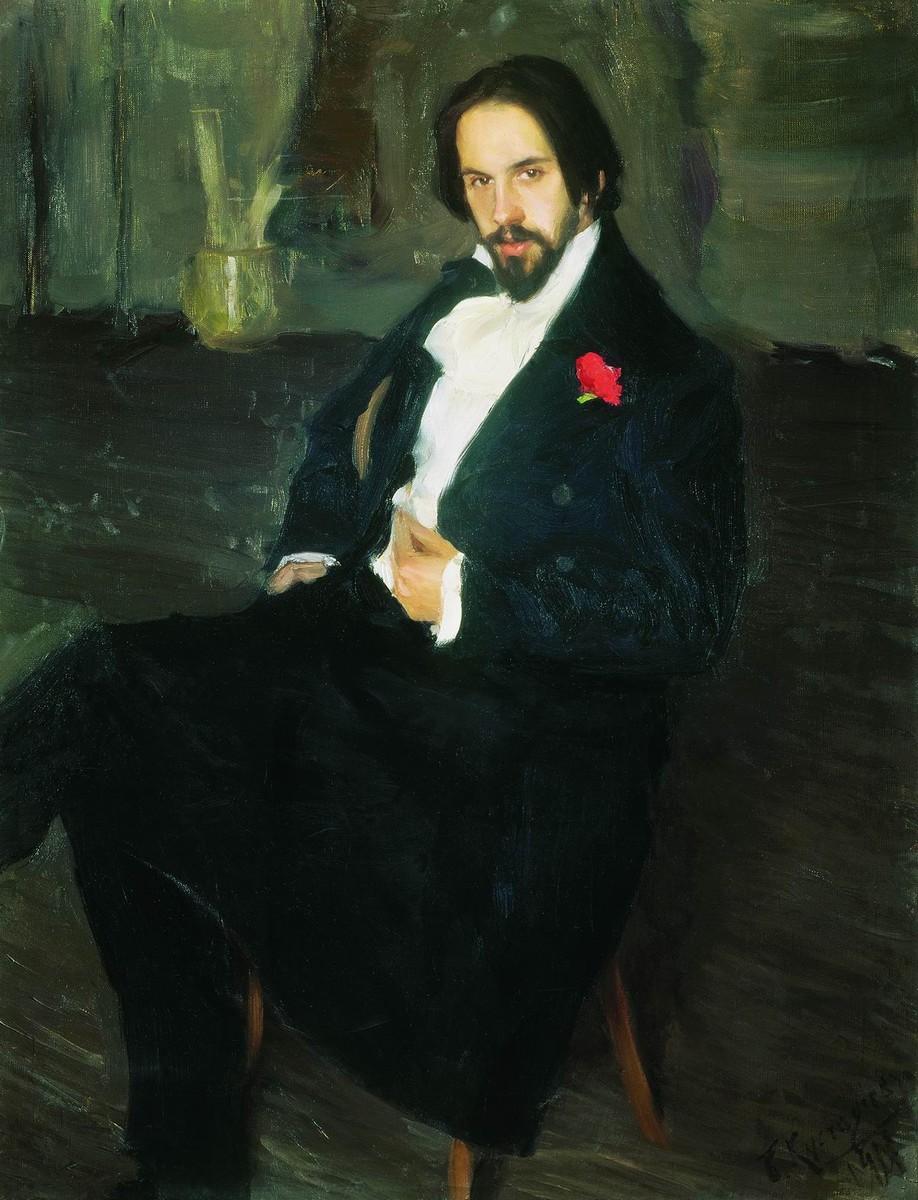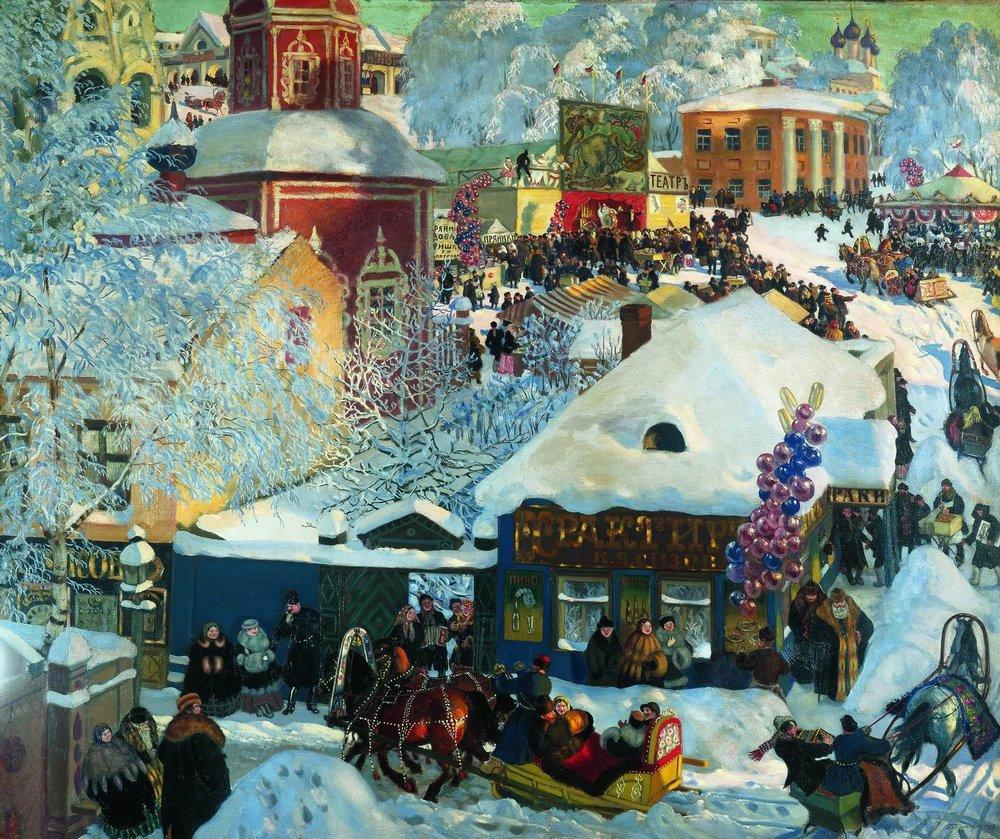|
Zhupel
''Zhupel'' (russian: Жупел) was a Russian satirical magazine, founded by Zinovii Grzhebin in 1905. Among the contributors were the most famous Russian writers and artists of the time. Despite the success, like many other Russian satirical magazines, it was closed by the Tsarist government after publishing three issues, while Grzhebin was imprisoned. In 1906, the creators tried to revive the journal under the name ''Hell's Mail'', but it was also closed after three issues. In English publications, the name is ofter translated as ''Bugbear'', although the creators wrote that the word ''жупел'' means 'hellish sulfur'. History The magazine was established in late 1905, after the October Manifesto, by Zinovii Grzhebin, a Russian cartoonist and publisher, later the founder of a symbolist publishing house ''Shipovnik''. His idea was to create a Russian version of ''Simplicissimus'', a political satire magazine with antimonarchical incline. Mstislav Dobuzhinsky said that Gr ... [...More Info...] [...Related Items...] OR: [Wikipedia] [Google] [Baidu] |
Zinovii Grzhebin
Zinovii Isaevich Grzhebin (russian: Зиновий Исаевич Гржебин (French transliteration Grjebine) was a Russian publisher and caricature illustrator. He represented more than 20% of the publishing market in Russia in the early 1910s and made a significant impact on development of the Russian book publishing industry. Biography Early Years and Education Zinovii was born in Chuguev, in Ukraine at that time part of the Russian empire. As the son of a soldier who had served 25 years in the Russian Army, he was less constrained by the anti-semitic measures regulating Russian society at the time and was permitted to stay in either St. Petersburg and Moscow. He graduated from Kharkov art school in 1899, then studied at Simon Hollochi school in Munich, later in Paris at the studio of Anton Ažbe. Beginning of the Career His close friend Korney Chukovsky recalled, that in 1905 Grzhebin returned to Russia as poor as a church mouse and with no social connections, b ... [...More Info...] [...Related Items...] OR: [Wikipedia] [Google] [Baidu] |
Boris Anisfeld
Boris Izrailevich Anisfeld (1878–1973) was a Russian-American painter and theater designer. Biography 1878 - October 2. Boris Izrailevich (Srulevich) Anisfeld is born in Bieltsy, in the Bessarabia Governorate of the Russian Empire (present-day Moldova), into the family of Srul Ruvinovich Anisfeld, an estate manager, and Gitlya Istkovna Anisfeld. Until he is seventeen, the future artist lives in his parents’ home. He learns German and French. 1885 - Anisfeld learns to play the violin, and begins to take up drawing. 1895 - Anisfeld enters the Odessa Drawing School, where he studies with K. K. Kostandi, at that time the leading teacher of portraiture and figure painting in Odessa. He meets V. A. Izdebsky, S. L. Abugov, and D. D. Burliuk. 1900 - Anisfeld enters the Imperial Academy of Arts in St. Petersburg. His first teacher is P. O. Kovalevsky, a painter of battle pictures. 1901 - Due to poor health (according to a medical certificate), Anisfeld takes a leave of absence ... [...More Info...] [...Related Items...] OR: [Wikipedia] [Google] [Baidu] |
Ivan Bilibin
Ivan Yakovlevich Bilibin ( rus, Ива́н Я́ковлевич Били́бин, p=ɪˈvan ˈjakəvlʲɪvʲɪt͡ɕ bʲɪˈlʲibʲɪn; – 7 February 1942) was a Russian illustrator and stage designer who took part in the ''Mir iskusstva'', contributed to the Ballets Russes, co-founded the Union of Russian Artists (russian: Сою́з ру́сских худо́жников) and from 1937 was a member of the Artists' Union of the USSR. Ivan Bilibin gained popularity with his illustrations of Russian folk tales and Slavic folklore. Throughout his career he was inspired by the art and culture of Rus'. Biography Ivan Bilibin was born in Tarkhovka, a suburb of St. Petersburg. He studied in 1898 at Anton Ažbe Art School in Munich, where he was heavily influenced by Art Nouveau and the German satirical journal ''Simplicissimus'', and then under Ilya Repin in St. Petersburg.Janina Orlov, 'Ivan Bilibin' in Donald Haase, ''The Greenwood Encyclopedia of Folktales and Fairy Tales: A-F'' ... [...More Info...] [...Related Items...] OR: [Wikipedia] [Google] [Baidu] |
Boris Kustodiev
Boris Mikhaylovich Kustodiev (russian: Бори́с Миха́йлович Кусто́диев; – 28 May 1927) was a Russian and Soviet painter and stage designer. Early life Boris Kustodiev was born in Astrakhan into the family of a professor of philosophy, history of literature, and logic at the local theological seminary. His father died young, and all financial and material burdens fell on his mother's shoulders. The Kustodiev family rented a small wing in a rich merchant's house. It was there that the boy's first impressions were formed of the way of life of the provincial merchant class. The artist later wrote, "The whole tenor of the rich and plentiful merchant way of life was there right under my nose... It was like something out of an Ostrovsky play." The artist retained these childhood observations for years, recreating them later in oils and water-colours. Art studies Between 1893 and 1896, Kustodiev studied in theological seminary and took private art lessons ... [...More Info...] [...Related Items...] OR: [Wikipedia] [Google] [Baidu] |
1905
As the second year of the massive Russo-Japanese War begins, more than 100,000 die in the largest world battles of that era, and the war chaos leads to the 1905 Russian Revolution against Nicholas II of Russia (Shostakovich's 11th Symphony is subtitled ''The Year 1905'' to commemorate this) and the start of Revolution in the Kingdom of Poland. Canada and the U.S. expand west, with the Alberta and Saskatchewan provinces and the founding of Las Vegas. 1905 is also the year in which Albert Einstein, at this time resident in Bern, publishes his four ''Annus Mirabilis'' papers in ''Annalen der Physik'' (Leipzig) (March 18, May 11, June 30 and September 27), laying the foundations for more than a century's study of theoretical physics. Events January * January 1 – In a major defeat in the Russo-Japanese War, General Anatoly Stessel of the Russian Army surrender Port Arthur, located in mainland China, to the Japanese. * January 3 – Japan take former posses ... [...More Info...] [...Related Items...] OR: [Wikipedia] [Google] [Baidu] |
Maxim Gorky
Alexei Maximovich Peshkov (russian: link=no, Алексе́й Макси́мович Пешко́в; – 18 June 1936), popularly known as Maxim Gorky (russian: Макси́м Го́рький, link=no), was a Russian writer and socialist political thinker and proponent. He was nominated five times for the Nobel Prize in Literature. Before his success as an author, he travelled widely across the Russian Empire changing jobs frequently, experiences which would later influence his writing. Gorky's most famous works are his early short stories, written in the 1890s (" Chelkash", " Old Izergil", and " Twenty-Six Men and a Girl"); plays '' The Philistines'' (1901), '' The Lower Depths'' (1902) and '' Children of the Sun'' (1905); a poem, " The Song of the Stormy Petrel" (1901); his autobiographical trilogy, '' My Childhood, In the World, My Universities'' (1913–1923); and a novel, ''Mother'' (1906). Gorky himself judged some of these works as failures, and ''Mother'' has ... [...More Info...] [...Related Items...] OR: [Wikipedia] [Google] [Baidu] |
Visual Arts Magazines Published In Russia
The visual system comprises the sensory organ (the eye) and parts of the central nervous system (the retina containing photoreceptor cells, the optic nerve, the optic tract and the visual cortex) which gives organisms the sense of sight (the ability to detect and process visible light) as well as enabling the formation of several non-image photo response functions. It detects and interprets information from the optical spectrum perceptible to that species to "build a representation" of the surrounding environment. The visual system carries out a number of complex tasks, including the reception of light and the formation of monocular neural representations, colour vision, the neural mechanisms underlying stereopsis and assessment of distances to and between objects, the identification of a particular object of interest, motion perception, the analysis and integration of visual information, pattern recognition, accurate motor coordination under visual guidance, and more. The ... [...More Info...] [...Related Items...] OR: [Wikipedia] [Google] [Baidu] |
Defunct Magazines Published In Russia
{{Disambiguation ...
Defunct (no longer in use or active) may refer to: * ''Defunct'' (video game), 2014 * Zombie process or defunct process, in Unix-like operating systems See also * * :Former entities * End-of-life product * Obsolescence Obsolescence is the state of being which occurs when an object, service, or practice is no longer maintained or required even though it may still be in good working order. It usually happens when something that is more efficient or less risky r ... [...More Info...] [...Related Items...] OR: [Wikipedia] [Google] [Baidu] |
1906 Disestablishments In The Russian Empire
Nineteen or 19 may refer to: * 19 (number), the natural number following 18 and preceding 20 * one of the years 19 BC, AD 19, 1919, 2019 Films * ''19'' (film), a 2001 Japanese film * ''Nineteen'' (film), a 1987 science fiction film Music * 19 (band), a Japanese pop music duo Albums * ''19'' (Adele album), 2008 * ''19'', a 2003 album by Alsou * ''19'', a 2006 album by Evan Yo * ''19'', a 2018 album by MHD * ''19'', one half of the double album ''63/19'' by Kool A.D. * ''Number Nineteen'', a 1971 album by American jazz pianist Mal Waldron * ''XIX'' (EP), a 2019 EP by 1the9 Songs * "19" (song), a 1985 song by British musician Paul Hardcastle. * "Nineteen", a song by Bad4Good from the 1992 album ''Refugee'' * "Nineteen", a song by Karma to Burn from the 2001 album ''Almost Heathen''. * "Nineteen" (song), a 2007 song by American singer Billy Ray Cyrus. * "Nineteen", a song by Tegan and Sara from the 2007 album '' The Con''. * "XIX" (song), a 2014 song by Slipknot. ... [...More Info...] [...Related Items...] OR: [Wikipedia] [Google] [Baidu] |
1905 Establishments In The Russian Empire
Nineteen or 19 may refer to: * 19 (number), the natural number following 18 and preceding 20 * one of the years 19 BC, AD 19, 1919, 2019 Films * ''19'' (film), a 2001 Japanese film * ''Nineteen'' (film), a 1987 science fiction film Music * 19 (band), a Japanese pop music duo Albums * ''19'' (Adele album), 2008 * ''19'', a 2003 album by Alsou * ''19'', a 2006 album by Evan Yo * ''19'', a 2018 album by MHD * ''19'', one half of the double album ''63/19'' by Kool A.D. * ''Number Nineteen'', a 1971 album by American jazz pianist Mal Waldron * ''XIX'' (EP), a 2019 EP by 1the9 Songs * "19" (song), a 1985 song by British musician Paul Hardcastle. * "Nineteen", a song by Bad4Good from the 1992 album '' Refugee'' * "Nineteen", a song by Karma to Burn from the 2001 album ''Almost Heathen''. * "Nineteen" (song), a 2007 song by American singer Billy Ray Cyrus. * "Nineteen", a song by Tegan and Sara from the 2007 album '' The Con''. * "XIX" (song), a 2014 song by Slipknot. ... [...More Info...] [...Related Items...] OR: [Wikipedia] [Google] [Baidu] |
Konstantin Pobedonostsev
Konstantin Petrovich Pobedonostsev ( rus, Константи́н Петро́вич Победоно́сцев, p=kənstɐnʲˈtʲin pʲɪˈtrovʲɪtɕ pəbʲɪdɐˈnostsɨf; 30 November 1827 – 23 March 1907) was a Russian jurist, statesman, and adviser to three Tsars. He became the chief spokesman for reactionary positions and the éminence grise of imperial politics during the reign of Alexander III of Russia (1881–1894), holding, between 1880 and 1905, the position of Ober-Procurator of the Most Holy Synod, the non-clerical Russian official who supervised the Russian Orthodox Church. His writings on politics, law, art, and culture emphasized the positive element of the spiritual and secular unification of Russia with the acceptance of Christianity while simultaneously condemning the Jewish population. He warned of the negative element in Russia, portraying democratic and liberal movements as enemies of the national and religious unity of Russian people. Achieving a harm ... [...More Info...] [...Related Items...] OR: [Wikipedia] [Google] [Baidu] |





